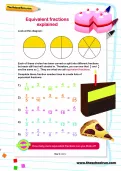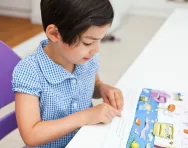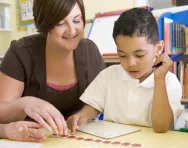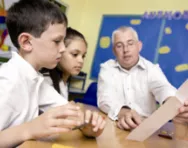TheSchoolRun.com closure date
As we informed you a few months ago, TheSchoolRun has had to make the difficult decision to close due to financial pressures and the company has now ceased trading. We had hoped to keep our content available through a partnership with another educational provider, but this provider has since withdrawn from the agreement.
As a result, we now have to permanently close TheSchoolRun.com. However, to give subscribers time to download any content they’d like to keep, we will keep the website open until 31st July 2025. After this date, the site will be taken down and there will be no further access to any resources. We strongly encourage you to download and save any resources you think you may want to use in the future.
In particular, we suggest downloading:
- Learning packs
- All the worksheets from the 11+ programme, if you are following this with your child
- Complete Learning Journey programmes (the packs below include all 40 worksheets for each programme)
You should already have received 16 primary school eBooks (worth £108.84) to download and keep. If you haven’t received these, please contact us at [email protected] before 31st July 2025, and we will send them to you.
We are very sorry that there is no way to continue offering access to resources and sincerely apologise for the inconvenience caused.
How to support an underachieving child

When it comes to supporting an underachieving child, what you can do as a parent initially is rule out any physical or neurological causes for underachievement. Start with a full medical examination, including both eye and ear tests. If no physical problems are found, it’s then helpful to look for emotional, environmental, and family issues that may be causing or supporting underachievement by distracting the child from learning.
Once you’ve covered that, try the following tactics to support their development.
Unique learning styles
We don’t all learn in the same way. Some children will be comfortable researching information using books, others may find the interactive nature of the internet, videos, CDs or even interviewing someone suits them better.


Start a unique learning programme!
- Weekly programme for each school year
- Worksheets sent direct to your inbox
- Keeps your child's learning on track
It’s important that a child be given an opportunity to discover their learning style by exploring a variety or combination of ways to successfully accomplish a homework task or school project.
Personal interests
Can these be used to anchor a child’s interest in learning? We all have an interest that can hold our fascination. When this desire is stimulated – whether it’s steam engines or street dancing – we eagerly invest time and money to develop that interest.
Unfortunately, academia doesn’t always easily accommodate our interests but we can often find a way to harness that enthusiasm – for example, reluctance to read may be tackled by encouraging a child keen on football to read their favourite club’s season report.
Change the label
Finally, a child who is underachieving may simply have talents and abilities in areas outside traditional academics. They may excel as artists, sail boat builders, hair stylists, or mechanics.
The greatest gift we can give these different learners is permission to be themselves, and encouragement to follow their passions. It is important to replace the label of ‘underachiever' with ‘differently achieving’.
Remember that Albert Einstein was labelled as an ‘underachiever’ as a youth. His alternative vision of the world is one that has earned him an indelible place in history. Should we have any less faith in our own kids?








